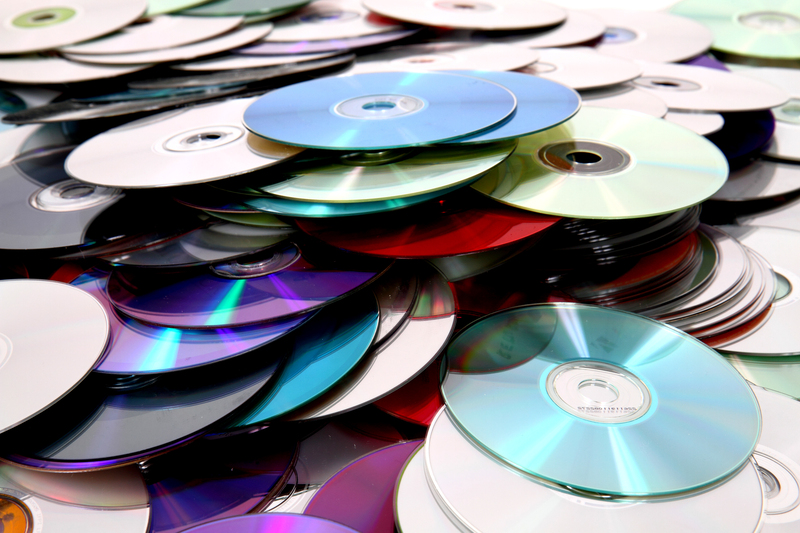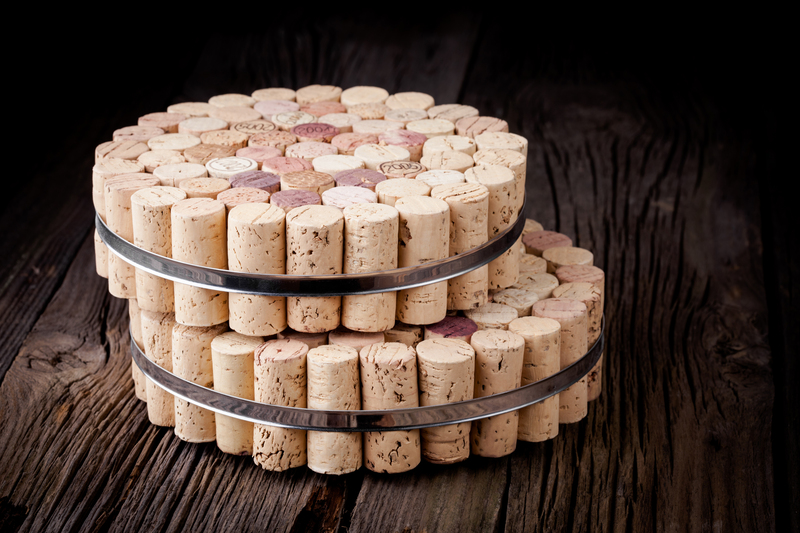Reduce Kitchen Clutter by Recycling Old Cookware
Does your kitchen feel overwhelmed by a jumble of worn pots, mismatched pans, and gadgets you no longer use? Over time, it's easy for unnecessary items to pile up, leading to clutter, frustration, and wasted space. But with a mindful approach, you can reduce kitchen clutter by recycling old cookware--transforming your cooking space into a more organized, efficient, and eco-friendly zone.

Why Reducing Kitchen Clutter Matters
An uncluttered kitchen serves more than just aesthetics. It fosters better meal prep, improves safety, and can even encourage healthier eating habits. Let's explore why a decluttered kitchen is so beneficial:
- Efficiency: Quickly find and access what you need.
- Safety: Fewer items on counters reduce the risk of accidents.
- Mental Well-being: A tidy kitchen minimizes stress and enhances enjoyment in cooking.
- Hygiene: Less clutter makes cleaning easier, preventing the buildup of grime and bacteria.
Common Sources of Kitchen Clutter
Before tackling clutter, it's worth identifying its typical causes. The main culprits include:
- Pots and pans with broken handles or warped bases
- Mismatched lids and containers
- Outdated utensils and gadgets
- Appliances no longer in use
- Duplicate items
The Importance of Recycling Old Cookware
While simply throwing away unwanted cookware might seem like the easiest fix, this approach contributes to landfill waste and environmental harm. Pots, pans, and kitchen utensils often comprise valuable materials that can be reclaimed and reused. Recycling old kitchenware not only helps to reduce clutter, but also supports the environment and the economy.
- Eco-friendly: Recycling reduces the extraction of new raw materials and minimizes landfill use.
- Resource-efficient: Materials like aluminum and steel can be recycled repeatedly without losing quality.
- Community benefit: Donating usable items helps local families and charities.
What Can Be Recycled?
When it comes to sustainable kitchens, many types of cookware are recyclable or reusable. Here's a breakdown:
- Metal pots and pans: Aluminum, stainless steel, copper, and cast iron are all valuable metals that can often be recycled.
- Bakeware: Metal muffin tins, baking trays, and loaf pans are usually suitable for recycling.
- Glass cookware: Borosilicate glass dishes may be accepted at facilities that process glass.
- Plastic utensils: Certain plastics (marked with recycling numbers) may be taken by specialized centers.
- Small appliances: Coffee makers, toasters, and blenders can often be recycled at e-waste facilities.
Step-by-Step Guide: Declutter and Recycle Kitchen Cookware
*Ready to begin?* Below is a comprehensive, step-by-step approach to reduce kitchen clutter by recycling your old cookware:
1. Take Inventory of Your Kitchen Tools
Start by emptying your cupboards, drawers, and cabinets of all cookware and utensils. Lay everything out for a full view of what you own. Seeing your collection at once highlights duplicates, broken items, and those you no longer use.
- Sort by type: Group similar items--pots, pans, bakeware, utensils.
- Check condition: Discard anything broken, rusted, or unsafe.
- Note duplicates: Keep only what you regularly use or need.
2. Decide What to Keep, Donate, or Recycle
As you declutter, separate items into three categories:
- Keep: Everyday essentials in good condition.
- Donate: Usable pieces you rarely use but are still safe and functional.
- Recycle: Worn or damaged items made of recyclable materials.
Items like worn-out non-stick pans, warped baking sheets, and rusted utensils are good candidates for recycling. Unwanted but usable cookware can be donated to shelters, charities, or given away online.
3. Find Your Local Recycling Options
Recycling cookware isn't always as straightforward as tossing it in the curbside bin. Here's how to find the right facility:
- Check your municipality: Many city websites list what metals and plastics are accepted at recycling centers.
- Call recycling centers: Ask if they accept pots, pans, and bakeware. Some may only take pure metals (like aluminum and steel).
- Look for scrap metal dealers: These facilities often accept all metal cookware, including cast iron.
- E-waste events: For small kitchen appliances, look into electronics recycling events or facilities.
4. Prepare Items for Recycling or Donation
Before taking your cookware to the recycling center, make sure to:
- Remove plastic, rubber, or wooden handles from pots and pans, as these parts may not be recyclable.
- Clean items thoroughly to avoid contamination and ensure they're accepted.
- Bundle similar metals together for quicker processing.
5. Repurpose Damaged or Unwanted Items Creatively
Not all old cookware has to be recycled in the traditional sense. Upcycling can breathe new life into tired pots or pans:
- Turn a cast iron skillet into a quirky wall planter.
- Use muffin tins as desk organizers for small office supplies.
- Transform a metal colander into a hanging lamp shade.
- Paint and hang old lids as unique kitchen art.
Repurposing is a sustainable way to reduce kitchen clutter while adding a creative touch to your home!
Tips for Maintaining a Clutter-Free Kitchen
Now that you've reclaimed your space, how do you prevent kitchen clutter from returning? Here are some helpful strategies:
- Adopt a "one-in, one-out" rule: For every new item, donate or recycle an old one.
- Review your kitchenware twice a year: Catch excess items before they pile up.
- Invest in multi-purpose tools: Reduce the need for specialized, single-use gadgets.
- Store cookware efficiently: Use racks, dividers, and vertical storage to keep items accessible.
- Stay mindful about purchases: Only buy replacement cookware when truly needed.
Frequently Asked Questions About Recycling Kitchenware
Can non-stick pans be recycled?
Most recycling centers do not accept non-stick coatings due to chemical treatments. If the pan is all metal, you may be able to remove the coating and recycle the base. Otherwise, dispose according to local hazardous waste guidelines or donate if still usable.
What about ceramic or glass cookware?
Ceramics often aren't widely recyclable because of the way they're manufactured. Some specialized facilities handle oven-safe borosilicate glass, so check locally. Repurposing as planters or serving dishes is often a better option.
Are plastic utensils recyclable?
Only certain types of plastics are accepted--check the recycling number and your municipal guidelines. Heavily stained or melted utensils should be disposed of properly.
Can I recycle electric kitchen appliances?
Yes! Small appliances like coffee makers, mixers, and blenders can be recycled as e-waste at designated collection centers. Remove batteries or hazardous components before recycling.
Is donating better than recycling?
Whenever possible, donate safe and functional cookware so others can use them. Recycling is best for items that are broken, outdated, or unsafe for reuse.

Making Kitchen Organization a Habit
Decluttering isn't just a one-time project. By creating a routine of periodic kitchen decluttering and responsible recycling, you're investing in a streamlined, joyful cooking experience--and a healthier planet.
- Set a seasonal reminder to review your cookware collection.
- Encourage family members to participate in recycling efforts.
- Stay informed about local recycling opportunities.
Conclusion: Enjoy the Benefits of a Clutter-Free Kitchen
A clean kitchen isn't just visually appealing--it's the heart of a healthy, efficient, and eco-friendly lifestyle. When you reduce kitchen clutter by recycling old cookware, you make room for inspiration, well-being, and environmental responsibility.
*Ready to start?* Take the first step toward a more functional kitchen by sorting through your cookware today. Whether you donate, recycle, or upcycle, every effort helps create a tidier home and a greener world.
Transform your kitchen--one recycled pot or pan at a time!